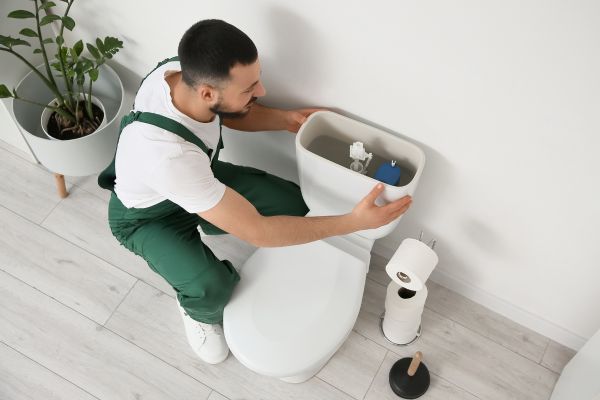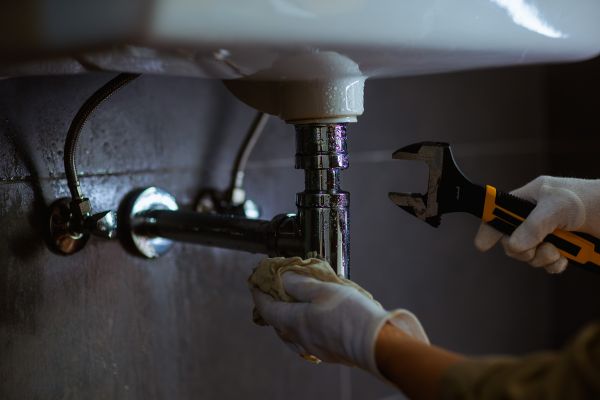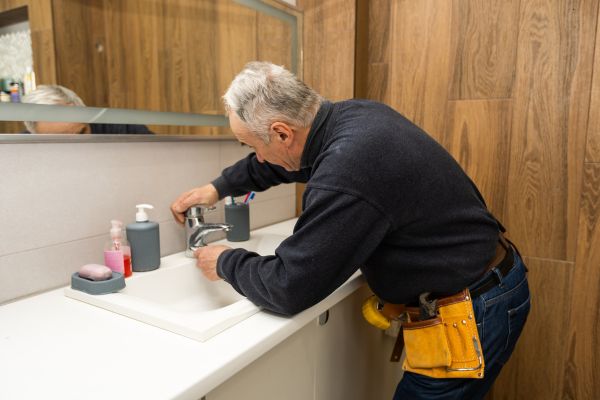When the Water Won’t Flow
Picture this: you’re standing in your kitchen or bathroom, staring at a sink that’s refusing to drain. Frustrating, right? A clogged drain is one of those household nuisances that everyone faces sooner or later. While DIY solutions might provide temporary relief, nothing beats the expertise of a clogged drain plumber.
In this guide, we’ll dive into everything you need to know about clogged drains, from common causes to when it’s time to call in the pros. Let’s unclog those questions and get the water flowing again!
Common Causes of Clogged Drains
Ever wondered what’s lurking in your pipes? Here are the usual suspects behind clogged drains:
- Grease and Oil: Kitchen sinks often fall victim to cooking grease that solidifies and blocks the pipes.
- Hair and Soap Scum: Bathrooms are notorious for this duo clogging up drains over time.
- Foreign Objects: Kids’ toys, jewelry, or even chunks of food can create a barrier in your pipes.
- Mineral Build-Up: Hard water deposits can gradually narrow your drainpipes.
- Tree Roots: These sneaky invaders can crack and clog outdoor plumbing lines.
DIY Solutions: To Plunge or Not to Plunge?
Before calling a clogged drain plumber, many homeowners try their hand at DIY fixes. While some solutions can work, they’re not always a permanent fix. Here are a few common DIY methods:
- Plunger: A trusty plunger can dislodge minor clogs.
- Boiling Water: Pouring boiling water down the drain can dissolve grease or soap scum.
- Vinegar and Baking Soda: This classic combo can help break down organic material.
- Drain Snake: A simple tool for pulling out hair and debris.
Pro Tip: Avoid chemical drain cleaners—they can damage your pipes over time!
When to Call a Clogged Drain Plumber
So, when should you throw in the towel and call a pro? Here are some signs it’s time to reach out:
- Recurring Clogs: If your drain keeps clogging after DIY attempts, there’s likely a deeper issue.
- Slow Draining: Water pooling in your sink or tub is a red flag.
- Unpleasant Odors: Foul smells often indicate trapped debris or sewer gas.
- Multiple Clogged Drains: If several drains are slow or clogged, the problem might be in your main sewer line.
- Flooding or Backups: These are plumbing emergencies that need immediate attention.
What Does a Clogged Drain Plumber Do?
A professional plumber doesn’t just unclog your drain—they diagnose and solve the root cause of the problem. Here’s what you can expect:
- Inspection: Plumbers use tools like cameras to inspect the pipes and identify blockages.
- Specialized Equipment:
- Hydro Jetting: High-pressure water jets clear stubborn clogs.
- Augers: These tools break up tough blockages.
- Pipe Repairs or Replacement: If your pipes are damaged, a plumber will recommend the best course of action.
- Preventive Advice: Professionals offer tips to keep your drains clog-free.
Preventive Tips to Keep Your Drains Flowing
An ounce of prevention is worth a pound of cure, especially when it comes to clogged drains. Follow these tips to avoid future plumbing problems:
- Use Drain Covers: Catch hair and debris before they enter your pipes.
- Dispose of Grease Properly: Pour grease into a container, let it solidify, and toss it in the trash.
- Flush Pipes Regularly: Run hot water down your drains weekly.
- Watch What You Flush: Only flush toilet paper and human waste.
- Schedule Routine Inspections: A clogged drain plumber can perform regular maintenance to keep your plumbing in top shape.
FAQs About Clogged Drains
1. What’s the fastest way to clear a clogged drain?
The fastest method is often using a plunger or a drain snake. However, for severe clogs, call a clogged drain plumber.
2. Can I use chemical drain cleaners?
While chemical cleaners may work temporarily, they can corrode your pipes. It’s better to opt for natural solutions or call a professional.
3. How much does a plumber charge to unclog a drain?
Costs vary, but the average ranges from $100 to $300, depending on the severity of the clog.
4. Can tree roots clog indoor drains?
Yes, tree roots can infiltrate underground pipes and cause blockages that affect indoor plumbing.
5. How often should I clean my drains?
Schedule professional cleaning at least once a year to prevent major clogs.
Final Thoughts: Why Hire a Clogged Drain Plumber?
Dealing with a clogged drain can be a hassle, but you don’t have to tackle it alone. A clogged drain plumber brings expertise, tools, and long-term solutions to your plumbing problems. So, the next time water refuses to flow, skip the guesswork and call a pro—you’ll save time, money, and a whole lot of frustration.
Authoritative Links
- Plumbing basics: https://www.familyhandyman.com
- Drain cleaning tips: https://www.thisoldhouse.com
- Professional plumbing services: https://www.angi.com



